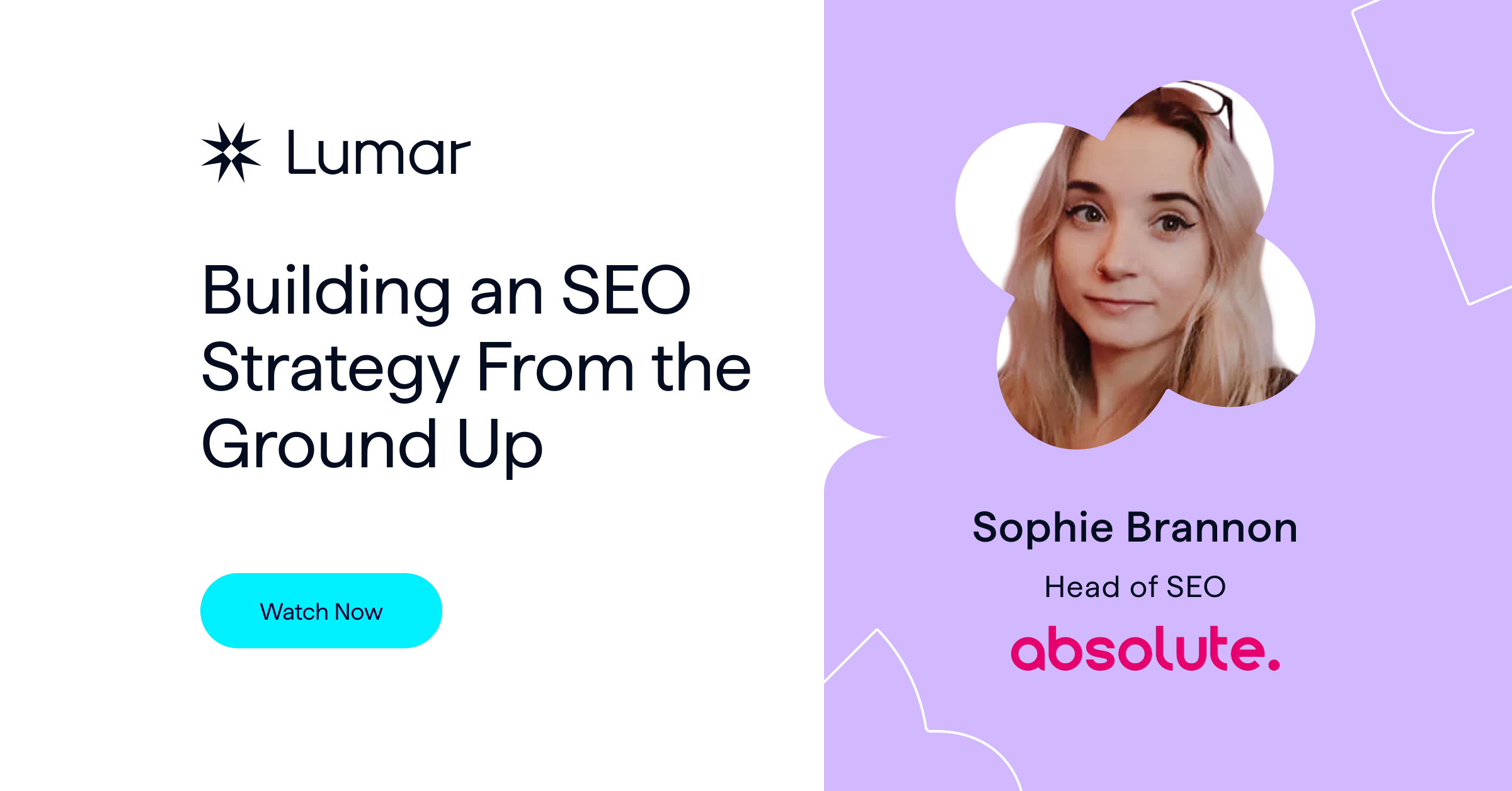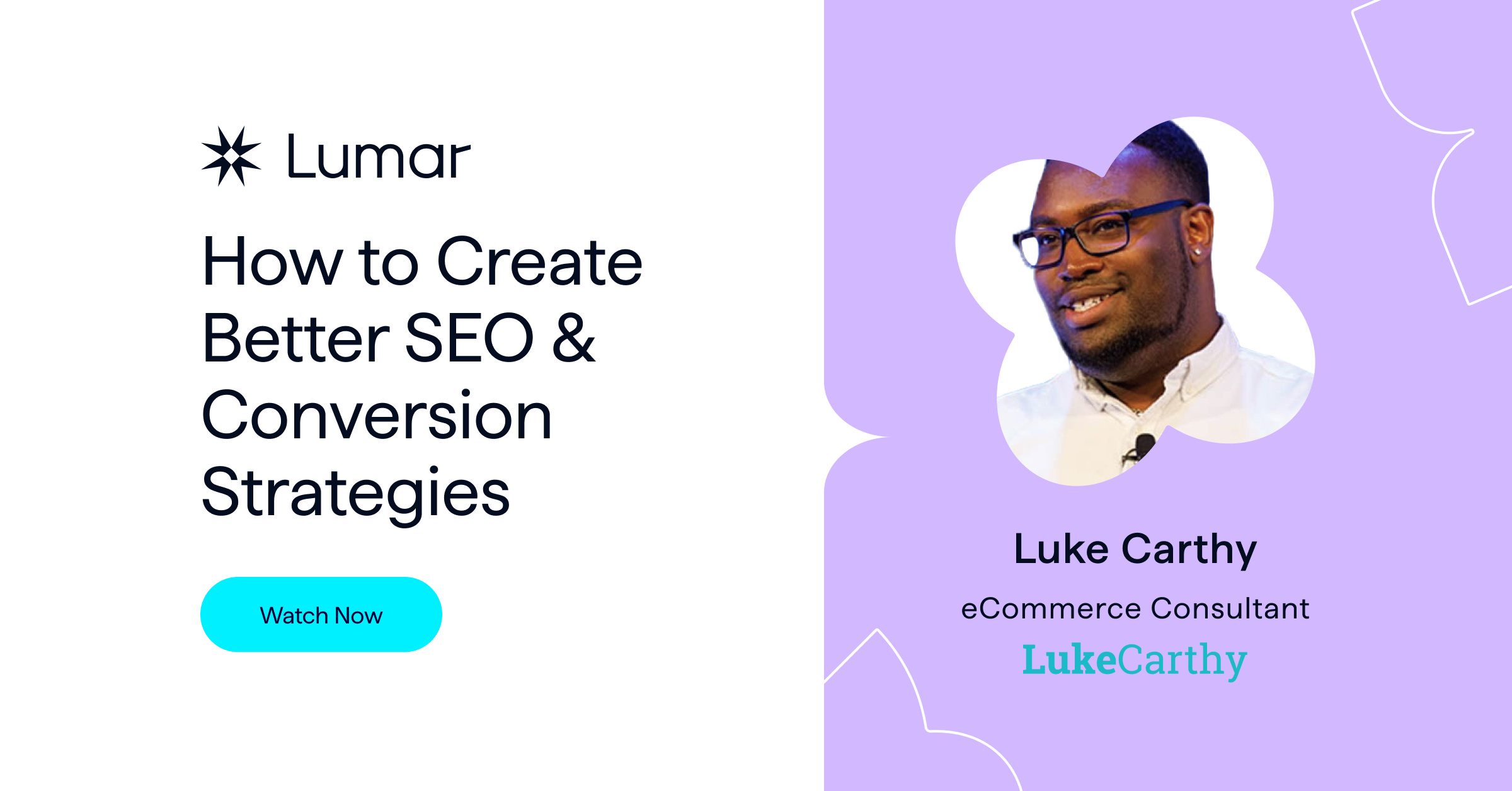For our last DeepCrawl webinar, we were joined by Eli Schwartz, former Director of Growth and SEO at SurveyMonkey, who sat down with Jon Myers to talk about the challenges of Enterprise SEO. During the webinar with Eli, so many brilliant questions were submitted by our audience that there wasn’t time to answer all of them live.
Luckily, Eli went away and wrote up his thoughts on the remaining questions, which we’ve included in this post. Read on to find out what he has to say.
At enterprise you’re using various tools which essentially do the same thing, why do you keep them all when they do similar things?
This is due to budget, if someone gives you budget to buy a tool and you swap out that tool for another, then you’ve essentially lost that budget. If you can get an additional budget to buy another tool, you’re parking budget you might not be using, so now it is available to swap into another that you need.
Depending on the cycle of a company, you may have to pitch for budget at the beginning or end of the year, for example, but a tool may come into the market in the middle of the year that you want but don’t have the budget for. This will allow you to inform the budget holder that you already have the budget within another tool and swap out between the tools.
However, if you’re budget conscious, by all means get rid of the tools you don’t need.
What models do you use, or have you built, for attributing SEO efforts to revenue?
Unfortunately at larger companies you’re never in control of a model, so you need to work with whoever is building that model and try to show them where there are gaps. For example, it may currently be focused on last click, but you can try and get them to model out what first click would be. This will allow you to use the data within conversations to prove the ROI that SEO is driving.
If you are unable to have a lot of influence in changing the model, instead ensure you collect the data so you have a counterpoint.
If your manager knows about SEO and they know that the algorithm changes affect revenue, what happens in the instance you potentially get a very favourable algorithm change, would Google take credit for that in their eyes versus your efforts?
It’s your responsibility to show how your efforts are helping. For example, if there’s an algorithm update and nothing happens then you need to be communicating that there has been an update, but nothing has happened as your site is set up correctly. However, if an algorithm update occurs and unfortunately something bad happens, you need to go out there and say ‘we’ve done all of these things, we don’t know what has happened but it looks like we have lost revenue and this shows how important organic traffic is, so we’re going to double down our efforts’.
If an algorithm update happens and it produces benefits for your site, you need to be able to say ‘we don’t know why it happened, but here are all the efforts we have undertaken and Google have now rewarded us’.
What do you think about tracking the number of indexed pages, is it a metric that you keep track of and if so, and it’s favourable to do so, what’s your favourite tool for doing this?
For larger sites it is important to track the number of indexed pages, especially if you are continuing to add more content. The site colon search feature, while not ideal, can help to show if you’re going in the right direction and getting more coverage. Google Search Console is another great tool to use and with the API you can pull how many pages from each sitemap are indexed, you can also use the standard UI to see this.
Do page titles have to be exactly as we find them in SEO tools?
This is a great area for testing, every site and every page will be different, so there is no right or wrong answer here. Test out different methods of combining keywords and see which one drives more traffic or achieves a better position.
How important is competitive research for SEO?
If you are trying to disrupt an industry, competitive research is very important because it will show you how others are achieving success. For example, you may find in many verticals no one has any links, so it wouldn’t be worth going after links but it may be worth going after better content or providing a better user experience.
If you are the dominant company in your industry, it can also be great to show this to other stakeholders.
Why should in-house SEOs not teach how SEO works?
If you want people to listen to what you have to say, you need to highlight that you have been in the industry for a number of years and have a lot of experience so you know what the right thing to do is. This will lead to a level of trust.
Do you have any enterprise SEO tips for larger, multi-location sites?
Perform a lot of testing and then implement everything at scale, to win for most locations. The key for performing SEO at scale is focusing on getting most rather than every single best position and every single click.
When does it make sense to invest in larger SEO tools and how do you justify the costs of these tools?
The best thing to do is have the sales person from any of the tools you are interested in using help you build a case. Ensure they provide you with data to show how the tool will help you be more successful and tie that into revenue, while also working with your current business processes.
If you are looking to invest in an enterprise level SEO tool, contact our sales team for a demo of a bespoke package customized to your needs.
What do you include as the SEO channel cost? Do you include just the SEOs time, or also the encompassing project cost?
You want to keep the cost as low as possible, do whatever you can to justify not having higher costs because everyone else is doing the exact same thing.
Is it better to consolidate international pages with small amounts of translations into one domain by redirecting or another way?
It is better to consolidate these pages rather than using hreflang or TLDs unnecessarily. If there is no value in the different subdomains, consolidating is the best practice option.
How do we measure SEO impressions and clicks?
My favorite tool for this is Google Search Console. If you don’t trust the query data, you might want to just use the URL reports. Granted this data is not perfectly accurate, but I think it has less flaws than any other analytics package except for straight log reporting. Additionally, there is no other place you are going to get data on your visibility in search.
How about Adobe Analytics? Care to weigh in on that?
I can’t speak to Adobe Analytics specifically, but I believe it has the same flaws as any script based analytics tool in that it can only capture data when the script runs. As a result, there will be data gaps around regulatory required anonymization (ie GDPR), mobile, and browsers that don’t run scripts.
What if your company values and services are data privacy and online protection therefore we (SEO team) are using Open Source Analytics such as AT Internet or Matomo with limited data (compare to GA, GSC…) How will you manage to keep on track the SEO campaigns?
This is not too dissimilar from people using corporate analytics packages. In this case, just rely on Google Search Console which doesn’t have any data privacy issues.
How do you prove the value of SEO to then get future buy-in?
Tie yourself to business level KPI’s as any other marketing might do. If you can prove that $X in SEO spend generated $Y in SEO returns you will have a far easier time proving that you deserve more bandwidth, engineering time, people or whatever. Use the argument I laid out on my blog about SEO ROI and no other team will be able to say that their spend is nearly as effective as SEO.
Essentially, transform SEO into a revenue carrying team rather than overhead. If that means you will have targets and a quota, so be it. Work with the leadership to develop a reasonable target and crush it!
What does the A stand for in CAC?
Acquisition.
How can you create a revenue model that you can’t fully control?
In any business, no one can really control their revenue model in whatever their function might be. Sales contacts might disappear, budgets could get cut, costs could go up… In SEO we are fortunate that we now have lots of data that we could use to make some sort of forecast. Use that data to make a loose model and then overdeliver.
I am not at all suggesting that you try to pinpoint how much traffic you can get on every keyword, but if from 2017 to 2018, SEO grew 15%, instead of saying 2018 to 2019 will grow 15%, make a rough model that you will feel comfortable with believing you can hit 20%. Don’t settle for the unknown, take control of your planning.
Why do you never share rankings?
First and foremost rankings are completely useless for predicting business outcomes – which is the metric we should be responsible for achieving. I have seen so many instances of organizations that were tracking vanity metrics that were doing nothing at all for their business. I would rather be focused on efforts that will achieve a 100% growth in revenue from the organic channel – rather than having to spend time trying to promote a keyword that will do nothing for the business.
Second, rankings are no longer a function of whether you will get the click from the position as search query intent matters the most! Sharing vanity metrics like rankings distract companies from doing the things they need to be doing to create quality content and meet the intent of users looking for their site.
Finally, we don’t control rankings at all. I don’t want to take credit for a magical #1 ranking only to have to be blamed when it goes to #2. I only had mild input on those rankings, so I would prefer to focus on what I could impact.
Which are the ideal professionals which SEO Manager will need in order to work flowely?
The SEO team needs to work closely with everyone in a company from the CEO to engineers to PR.
We’d like to say another big thank you to Eli for taking the time to answer all of these questions and providing his expert insights on this topic.



